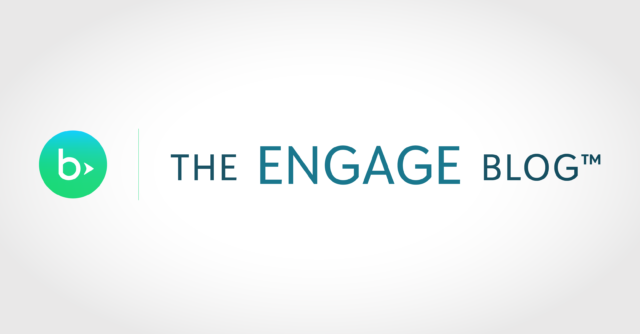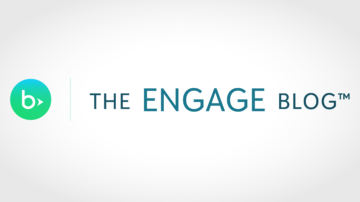What is Donor Relation Management?

Donor relation management is the process by which organizations organize donor data and maintain donor relationships to support a long-term donor infrastructure. Donor management centers around proactively fostering relationships with donors and leveraging donor data to cultivate donor interest, maximize retention, and utilize donor resources effectively. By solidifying a methodology for donor management, nonprofit organizations can optimize donor investment and engagement and identify areas for growth.
Table of Contents
- Importance of Donor Management
- Four Donor Management Benefits
- Challenges of Donor Management
- Donor Management Responsibilities
- How Donor Management is Implemented in Organizations
- Donor Management Software
- How Blackbaud Can Help
Importance of Donor Management
Employing an effective donor management program is crucial for any nonprofit organization. Understanding the ebbs and flows of donor relations by tracking your organization’s interactions with donors and prospects is necessary to support long-term growth. Donor management allows organization leaders to be transparent with donors and volunteers within their network while simultaneously facilitating an environment for sustainable investment.
Four Donor Management Benefits
Beyond fostering a positive environment for donors, adopting an effective donor management system offers several additional benefits for organizations of every size.
1. Measurable Growth
Donor management helps cultivate prolonged success and growth by steering organizational leaders toward a donor-centric action plan. It takes various components to make an organization run effectively, and by properly utilizing donor data and information, organizations can track interactions, estimate future performance, address potential concerns, and see donor retention trends.
2. Sustainable Fundraising
Understanding and engaging with donor trends allows organizations to implement a donor action plan that aligns with the network’s unique goals. Donor management consolidates and simplifies donor data and fundraising actions so team members can address organizational needs and steward new investors in the network.
3. Improved Transparency
Donor sustainability is rooted in transparency; donors want to be in the know regarding the workings of an organization they support. Implementing a donor management program allows organizations to create a simplified channel of communication with donors about outcomes, upcoming actions, and special events. This kind of meaningful outreach and accountability encourages donor enrichment and interest.
4. Enhanced Data Utilizations
Effective donor management systems leverage donor data to maximize workflow to produce more positive results. For instance, a donor management system’s data can help a fundraising team create strategies unique to the organization’s donor pool, cultivating sustainable fundraising, properly utilizing donor grants, and identifying critical donor opportunities within the organization.
Challenges of Donor Management
Every organization is different, so obstacles to successful adoption and deployment of a donor management system also will be unique for each donor network. Some of the most common setbacks within donor management include:
- Donor discontent: Anticipating donor needs is difficult to perfect. Lapsed donors, such as those who leave one organization to support another, are hard to predict and hard to reverse. Donors may suddenly be unable to afford their contribution, causing an interruption in fundraising.
- Retention: There is never a guarantee that donors will maintain consistent contributions, so even with a top-tier donor management program and personalized communications, donor retention remains a challenge.
Donor Management Responsibilities
Donor management produces the most favorable results when the team using it tracks, analyzes, and acts on the information relevant to donors and to their organization’s goals.
Segment Donors
The biggest tip for building a beneficial relationship with donors is understanding the person behind the donation. Donor context allows organizations to develop customized action plans for different donors. Those with a solid donor management system will typically segment donors into categories based on donation frequency, fundraising levels, seasonality, first-time donors, and recurring donors. Creating unique strategies and engagement tactics around these segmented donor groups is one of the the most important steps an organization can take in fostering donor relationships.
Establish Goals and Streamline Communication
Every organization needs a goal for donations and standards for communication between organization members and donors across all categories. Larger donors may necessitate more frequent updates and communication to help collect input for organizational goals. Ultimately, every donor values and appreciates streamlined and consistent communication, often facilitated through monthly newsletters or periodic reports. Donor communication should be productive, informative, and personalized.
Utilize Donor Data
Donor data and information are the building blocks of an effective donor management program because this information provides the quickest snapshot into the organization’s performance. It’s impossible to improve something that can’t be measured. A high-quality donor management system should leverage donor retention rates, demographics, applicant yield rates, donor trends, and donor history to identify opportunities for improvement and actionable goals.
Encourage Donor Engagement and Feedback
While making a positive first impression on potential donors is a clear-cut demand, donors need to stay engaged past the point of their first donation for an organization to see sustainable growth. Donors should feel like active members of the organization to see the direct result of their impact and have an open forum to communicate feedback. Providing an accessible venue for feedback to adjust goals based on donor needs is the best way to cultivate a mutually amenable relationship. Implementing donor feedback is a surefire strategy for retaining donors and guaranteeing they feel authentically valued within the organization.
How Donor Management is Implemented in Organizations
Donor management is a crucial measure for every nonprofit organization, and while some organizations will hire an individual dedicated to the task of donor-management, other fundraising departments consider donor management every team member’s responsibility and train the entire staff to use donor management software. Organizations seeking to scale their donor program and see long-term growth have benefited from the modernization of donor management.
Donor Management Software
Several interconnected factors need to align within a donor management program to create an enriching experience for donors. Donor management software consolidates these factors to help organizations better utilize donor metrics. Some of the benefits of donor management software include:
- Data transparency: Donor management platforms help consolidate a robust library of data about donors, volunteers, and organization members. This data allows organizations to identify trends and opportunities to optimize the donor lifecycle.
- Simplified communication: Good donor management software allows organizations to run reports, access data, and store valuable information. The software provides a clear communication channel with donors and board directors to keep members informed and educated about goals and overall growth.
- Consolidated metrics: Donor management software simplifies organizing and accessing donor data. Donor management software can also be integrated with existing software tools already in use without disrupting nonprofit services. Donor management software allows organizations to synergize fundraising, accounting, marketing, and scouting all in one place.
- Automation: Organizations can save valuable time with the automated functionality of donor management software. Organizational leaders can generate scheduled analytic reports and set task reminders to help facilitate donor engagement. Lapsed donors can be easily thwarted by automating select donor connections.
How Blackbaud Can Help
As the leader in nonprofit software tools, donor management is made simple with Blackbaud’s fundraising software. Blackbaud is one of the most trusted platforms for nonprofit networks. Our donor management systems assist in making the process streamlined and accessible for donors and organization leaders. Simplify data management and enhance donor fundraising by requesting a demo with Blackbaud today.
